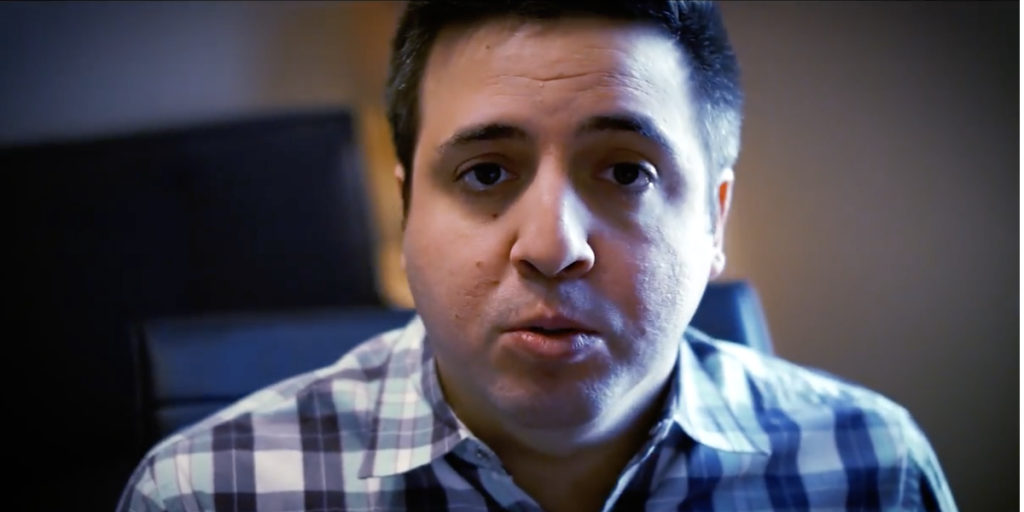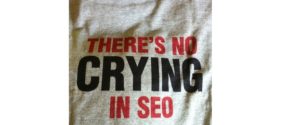



In 2013, The iMarketing Café team did an SEO survey that literally grabbed the attention of the SEO community. The objective was to take the pulse of the SEO community at a time when drastic changes were happening in the SEO world.
This year, we are back with another survey that we conducted on Twitter recently. We contacted more than 300 SEO experts around the world and requested them to tell us what they thought were the top 3 changes that can possibly happen in the SEO landscape in 2015. Same as last year, we didn’t publicize the survey but we could still collect opinions of some of the leading industry experts.
Our objective was to bring our readers some expert opinions on how the possible developments in the SEO landscape can change the way we approach SEO in 2015.
The iMarketing Café team heartily thanks all the contributors/experts for taking time out to respond to our tweets. Here we go…
Bill Slawski, Founder of SEO by the Sea Inc and Director at Go Fish Digital, says:
@iMarketingCafe More Knowledge Web results with rich snippets; even more in-depth articles, "appropriateness" as a ranking signal. 🙂
— Bill Slawski (@bill_slawski) October 6, 2014
Debra Mastaler, Founder of Alliance Link, says:
@iMarketingCafe 1. Google will continue to remove tools and cut back on analytics. 2…….. (next tweet)
— debra mastaler (@debramastaler) September 26, 2014
@iMarketingCafe 2. Audio search (OK, Google) will increase as mobile and wearables increase. 3. next tweet
— debra mastaler (@debramastaler) September 26, 2014
@iMarketingCafe 3. Local search gets bigger, think "local knowledge graph".
— debra mastaler (@debramastaler) September 26, 2014
Michael Martinez, President of Reflective Dynamics and Founder of SEO Theory, says:
FYI: Email response.
Gillian Muessig, Co-founder of Moz, says:
@iMarketingCafe community marketing becomes 'household' word. Int'l search specialists increase in number, + google will share even less.
— Gillian Muessig (@SEOmom) September 26, 2014
Brian Carter, Founder of The Carter Group, says:
@iMarketingCafe most smart people will finally stop trying to outsmart google.
— Brian Carter (@briancarter) October 8, 2014
@iMarketingCafe #2 2011 will call wanting its seo back from many 2015 seo companies. they will refuse to return it.
— Brian Carter (@briancarter) October 8, 2014
@iMarketingCafe #3 content marketing and social distribution (including ads) will remain more important than any non-technical seo tactic.
— Brian Carter (@briancarter) October 8, 2014
 Dan Petrovic, Director at DejanSEO, says:
Dan Petrovic, Director at DejanSEO, says:
FYI: Email response
AJ Ghergich, Founder of Ghergich & Co, says:
@iMarketingCafe 1. The Google Penguin Algorithm will be updated more frequently.
— AJ Ghergich (@SEO) October 8, 2014
@iMarketingCafe 2. Keywords will be less important as Google further understands content/search intent.
— AJ Ghergich (@SEO) October 8, 2014
@iMarketingCafe 3. Google will take more of your content & display it as their own…answering questions before the user gets to your site.
— AJ Ghergich (@SEO) October 8, 2014
Andrew Shotland, Founder of LocalSEOGuide, says:
@iMarketingCafe
1/3 There will be continued consolidation (i.e. roll-ups, m&a, etc.) of large organic agencies to capture more big brand $
— Andrew Shotland (@localseoguide) September 25, 2014
@iMarketingCafe
2/3 Thanks to inefficiencies of large agencies, there will continue to be vast opportunity for nimble, indy specialists
— Andrew Shotland (@localseoguide) September 25, 2014
@iMarketingCafe
3/3 Several SEO-related co's will attempt to IPO in 2015 creating more exit opportunities for the industry
— Andrew Shotland (@localseoguide) September 25, 2014
@iMarketingCafe
4/3 Google will keep screwing with your site
— Andrew Shotland (@localseoguide) September 25, 2014
 Adam Connell, Founder of Bloggingwizard, says:
Adam Connell, Founder of Bloggingwizard, says:
I don’t see too many major changes happening in 2015, it will likely be more of the same with a few curve balls thrown in along the way. But I can see the following happening:
• Mobile will be the big thing in 2015, making responsive design and page loading times even more important than they are now.
• Google will continue to tighten the net on tactics that are aimed at manipulating their rankings. This isn’t new but I see Google stepping up their game and they are already doing just that with the action taken on thousands of Private Blog Networks.
• More and more businesses (especially small businesses) will shift to using SEO as part of a cohesive marketing strategy rather than an isolated channel. And the metrics businesses care about will move in the right direction towards ROI and away from worrying too much about individual keyword rankings.
Our focus needs to be on the audience, improving user experience and ensuring our marketing strategy involves a diverse set of channels that doesn’t rely on a single channel to the point where it adds risk.
FYI: Email response
Brent Carnduff, Founder of Echelon SEO, says:
@iMarketingCafe 1. Voice search increase across all platforms, 2. Movement towards more PPC, 3. Increased importance and prominence of Local
— Brent Carnduff (@BrentCarnduff) October 9, 2014
Grant Simmons, VP of search strategies at Homes & ForRent, says:
@iMarketingCafe Context is King. Less tech focus, more customized / personalization of experience as ranking factor. Content is everything.
— Grant Simmons (@simmonet) October 13, 2014
 Kai Spriestersbach, Owner of Search One, says:
Kai Spriestersbach, Owner of Search One, says:
Google love brands, so SEO will more and more become digital brand building.
Brands rank faster, rank easier and are more durable to updates.
I think current SEO job descriptions will split up into three different jobs:
FYI: Email response
Pratik Dholakiya, Co-founder of E2M Solutions and OnlyDesignORG, says:
@iMarketingCafe 1. New Google Update May Come 2. Branding to get more stronger 3. Growing organic search visibility will get tough
— Pratik Dholakiya (@DholakiyaPratik) October 4, 2014
Garth O’Brien, SEO Director at Catalyst, says:
@iMarketingCafe The good ones stick to producing quality content, w/ white hat targeting on Responsive clean coded sites.
— Garth O'Brien (@garthobrien) October 2, 2014
@iMarketingCafe Those chasing gimmicks will continue to feel the wrath of updated and new algos.
— Garth O'Brien (@garthobrien) October 2, 2014
@iMarketingCafe Just keep educating the crawlers about your digital assets the best you can. Clean SEO, schema and sound social promotion.
— Garth O'Brien (@garthobrien) October 2, 2014
 Peter Attia, Head of marketing at Pingboard, says:
Peter Attia, Head of marketing at Pingboard, says:
FYI: Email response
Jeremy Dearringer, CEO at Newpro and Cofounder of Relevance, says:
@iMarketingCafe #1 More focus and budget allocated to content promotion allowing great content to get exposure and earn links
— Jeremy Dearringer (@PapaRelevance) October 3, 2014
@iMarketingCafe #2 More leveraging of 3rd party platforms/domains for owned media that already rank. Such as brands publishing on HuffPo
— Jeremy Dearringer (@PapaRelevance) October 3, 2014
@iMarketingCafe #3 Continued exponential shift to mobile, native apps and app search. Desktop search for B2C heading for the cliff
— Jeremy Dearringer (@PapaRelevance) October 3, 2014
 Patrick Hathaway, Director – marketing and Editor-in-chief for URL Profiler, says:
Patrick Hathaway, Director – marketing and Editor-in-chief for URL Profiler, says:
FYI: Email response
Ian Lurie, CEO of Portent, says:
@iMarketingCafe Continued silliness with shortcut ideas and 'how many links do I need?' type stuff…
— Ian Lurie (@portentint) October 6, 2014
@iMarketingCafe …everyone still trying to decode every statement anyone at Google ever makes…
— Ian Lurie (@portentint) October 6, 2014
@iMarketingCafe …continued unwillingness to realize there is no easy way, and that visibility + usefulness = high rankings.
— Ian Lurie (@portentint) October 6, 2014
Andy Beal, CEO of Trackur and Journalate, says:
@iMarketingCafe easy: pigeon, panda, and penguin. 😉
— Andy Beal (@AndyBeal) October 7, 2014
Takeshi Young, Founder of KeshKesh, says:
@iMarketingCafe 1) Update to Hummingbird, 2) Update to Knowledge Graph (Knowledge Vault), 3) Improved search for wearables (AppleWatch, etc)
— Takeshi Young (@takeshiyoung) September 30, 2014
Simon Penson, Founder of Zazzle Media, says:
@iMarketingCafe more technical focus on knowledge graph more investment in content strategy & more focus on brand as opposed to link metrics
— Simon Penson (@simonpenson) September 30, 2014
Dan Thies, Founder and CEO of MarketersBrainTrust and Head of BrainTrust Labs, says:
@iMarketingCafe Google will finally make some progress on eliminating the human intervention with penalties.
— Dan Thies (@danthies) October 3, 2014
@iMarketingCafe SEO junkies will finally have to wean themselves of Matt Cutts and get used to thinking again.
— Dan Thies (@danthies) October 3, 2014
@iMarketingCafe Somebody will come up with yet another name for content marketing, and everyone will act like it's new.
— Dan Thies (@danthies) October 3, 2014
Erwan Derlyn, SEO & SMM Manager at Zettle, says:
@iMarketingCafe more details.
1- mobile will overtake normal web traffic, so SEOs need to think mobile 1st now without forgetting desktop
— Erwan Derlyn (@AirForceWan) September 24, 2014
@iMarketingCafe
2 – app indexing opens a new challenge for SEOs that will need to think optimizations for both stores and SERPs.
— Erwan Derlyn (@AirForceWan) September 24, 2014
@iMarketingCafe
3-The basics are still overlooked. Nothing beats gr8 unique content with a Google friendly website structure, even in 2015.
— Erwan Derlyn (@AirForceWan) September 24, 2014
David Waterman, Director of SEO at The Search Agency, says:
@iMarketingCafe 1)Continued devalue of backlinks, 2)Increase in engagement metrics in Google's also and 3)Return of the meta keywords tag 😉
— David Waterman SEO (@SEOWaterman) September 24, 2014
Bob Jones, Director at Visible, says:
@iMarketingCafe 1. #google getting things right with their spam updates. 2. Local #SEO gets bigger. 3. #google will hide more data from us.
— Bob Jones (@bobjones) September 26, 2014
Themelis Cuiper, Director at AdSocialMedia, says:
@iMarketingCafe #SEOExpertSurvey 1) less SERP data from searchengines, 2) concentration on video (was already a 2014 prediction)
— Themelis Cuiper (@Themelis_Cuiper) September 26, 2014
@iMarketingCafe #SEOExpertSurvey and my nr 3) traffic away from big social networks instead business blog content towards light devices
— Themelis Cuiper (@Themelis_Cuiper) September 26, 2014
Harris Schachter, Content Marketing Product Manager at Capital One and Owner of OptimizePrime LLC, says:
@iMarketingCafe 1. More emphasis on CTR 2. More data sources into Google 3. More emphasis on co-citations and context associations
— Harris Schachter (@OptimizePrime) September 30, 2014
Barry Adams, Founder of PolemicDigital, says:
@iMarketingCafe 1. Google will steal more traffic from publishers through Knowledge Vault results
— Barry Adams (@badams) October 7, 2014
@iMarketingCafe 2. Google will steal more traffic from travel & finance sites with its own comparison engines
— Barry Adams (@badams) October 7, 2014
@iMarketingCafe 3. Google will continue to find new ways to steal traffic from all sites (Site Search boxes, etc) so they can sell more ads
— Barry Adams (@badams) October 7, 2014
Eric Lander, Associate Director of Digital Marketing at D50Media, says:
@iMarketingCafe @Yahoo restarts their own engine; @google will focus more on voice queries & semantics in context; Negative seo altos
— Eric Lander (@EricLanderSEO) October 7, 2014
David Iwanow, SEO Product Manager with Marktplaats, says:
@iMarketingCafe personalisation, focusing on user intention more, more negative SEO practices/methods #2015
— David Iwanow (@davidiwanow) October 8, 2014
Derek Edmond, Managing Partner of Komarketing, says:
@iMarketingCafe 1.) more focus on SEO and conversion optimization for mobile-friendly sites and browser experiences
— Derek Edmond (@DerekEdmond) October 8, 2014
@iMarketingCafe 2.) More pressure / demand for integration of technology platforms to demonstrate ROI
— Derek Edmond (@DerekEdmond) October 8, 2014
@iMarketingCafe 3.) focus on building more impactful partnerships with publishers and site owners to acquire links (continued…)
— Derek Edmond (@DerekEdmond) October 8, 2014
@iMarketingCafe … offline connections are just as critical to establishing online results (links, engagement, social mentions, etc)
— Derek Edmond (@DerekEdmond) October 8, 2014
Ryan Jones, Manager – search strategy & analytics at SapientNitro, says:
@iMarketingCafe 1. Mobile first attitude. 2. Growth of entity search. 3. More focus on user experience
— Ryan Jones (@RyanJones) October 8, 2014
Marshall Simmonds, Founder of Define Media Group Inc, says:
@iMarketingCafe More answer boxes, more news box integration, more hysteria
— Marshall Simmonds (@mdsimmonds) October 8, 2014
Kevin Gibbons, Managing Director of Blue Glass, says:
@iMarketingCafe sure! 1) SEO focus more on page engagement signals 2) smarter knowledge graph/entity optimisation 3) expect the unexpected!
— Kevin Gibbons (@kevgibbo) October 9, 2014
Jamie Knop, founder of SEO Weather, says:
@iMarketingCafe 1. SEO to be more PR focused. Especially with content pieces growing.
— Jamie Knop (@JamieKnop) October 9, 2014
@iMarketingCafe 2. UX to have a bigger impact on rankings.
— Jamie Knop (@JamieKnop) October 9, 2014
@iMarketingCafe 3. Mobile optimised sites to have an advantage in mobile searches.
— Jamie Knop (@JamieKnop) October 9, 2014
 Tad Chef, Founder of Onreact and SEO2.us, says:
Tad Chef, Founder of Onreact and SEO2.us, says:
What are the top 3 changes do you expect to happen in the SEO landscape in 2015? Very good question. I had to think about that for a while. It’s not even three months from now so anticipating those changes shouldn’t be that hard it seems. Especially as I have been pretty good at “predicting” or rather identifying trends over the years. This year it’s more difficult. Google seems to be pivoting a lot lately so that you can’t just extrapolate what they have done this year anymore in most cases.
For a long time Google’s strategy when it comes to online identity and Google+ has been very clear. Now it’s completely muddy again.
I think we will witness the point in 2015 when Google will cross the line to large scale content theft.
When Google starts stealing your content to put it into their “knowldege vault” that gets displayed whenever someone searches for a query you will compete directly with the search traffic monopolist. Without traffic “trickling through” anymore to your site there will be no incentive to give your great content to Google to monetize. I expect more some sites to opt out of Google like Apple, Facebook or News Corp had done in the past to some extent to protect their assets.
We already see some agencies dropping the moniker altogether and just offering services like outreach without naming it SEO,marketing, PR or whatever. Optimization has always been bigger than just marketing. You can optimize without selling and advertising. SEO has to become bigger to survive not just a tiny part of a larger but still small marketing discipline. Otherwise SEO will become just a synonym for SPAM.
FYI: Email response
Stoney deGeyter, President of PolePositionMarketing, says:
@iMarketingCafe 1) UX to play a greater role 2) Social media to have more significant 3) Site Speed & SSL to become more important
— Stoney deGeyter (@StoneyD) October 1, 2014
Tony Verre, Associate Director of Search Strategy at RockFishDigital, says:
@iMarketingCafe Reversing polarity on content creation. Due to Panda, reducing quantity for higher quality, more semantically-rich content
— Tony Verre (@TonyVerre) October 3, 2014
@iMarketingCafe For CPGs, larger focus on eTailer (AMZ, WMT, Target, etc.) search and optimization affecting transactional queries on GOOG
— Tony Verre (@TonyVerre) October 3, 2014
@iMarketingCafe My far-out theory: an increased importance on Agent/Author Rank that utilizes social signals more heavily by the end of 2015
— Tony Verre (@TonyVerre) October 3, 2014
Nicole Beckett, President of Premier Content Source, says:
@iMarketingCafe 1. More long-tail success 2. Changes to local search success 3. More cute animal names (panda, penguin, etc) 😉
— Nicole Beckett (@NicoleBeckett) September 30, 2014
Salman Ahsan, an Independent Internet Marketing Consultant, says:
@iMarketingCafe Google is unpredictable. Some say Private link network is dead but they are not. Just use it right. And dont forget youtube.
— Salman Ahsan (@salmanofficial) October 2, 2014
• Treat mobile and wearables at par with desktop. In fact, go the extra mile when it comes to mobile optimization.
• Basics remain the same and are still important.
• Audio/voice search will increase.
• App SEO will gain prominence
• Local SEO gets bigger
• Crackdown on Spammers will continue and more effective Google updates are expected to be rolled out.
• Increase in engagement metrics in Google’s algo and continued devaluation of backlinks.
• Brands are loved by Google. Branding efforts can really pay off.
• More sites are expected to switch to Https. Https effect on SERP rankings is almost insignificant as of now. But, Https as a ranking factor may gain more weight over time. Google says “But over time, we may decide to strengthen it, because we’d like to encourage all website owners to switch from HTTP to HTTPS to keep everyone safe on the web” Read more.
• Expect knowledge graph and semantic search to become more advanced and more answer boxes are likely to dominate search results. Here is a great article on Knowledge Graph Optimization written by AJ Kohn
• Greater emphasis and focus on UX, user intent, social signals, contextual content marketing, Author Rank/Trust, co-occurrence and co-citations and customization/personalization.
• Schema will play a more significant role
• Barnacle SEO is probably making a big comeback
• Smart people will make efforts to earn links rather than looking for safe ways to build links.
• SEO is not an isolated channel anymore, a significantly holistic approach of integrating core SEO with other channels is the way to go.
• Last but not the least, as Kevin Gibbons puts it “Expect the unexpected”
Presented by: TheiMarketingCafe Team
Join us on Facebook and Twitter
Copyright @ TheiMarketingCafé.com . You can use/publish excerpts from this post provided you give us the credit (link back).
 SEO Survey: Behind the Scenes Stories/Fun
SEO Survey: Behind the Scenes Stories/Fun
 SEO 2014: The Biggest SEO Survey of the Year
SEO 2014: The Biggest SEO Survey of the Year
 9 Futuristic SEO Questions Answered by Top SEO Experts
9 Futuristic SEO Questions Answered by Top SEO Experts